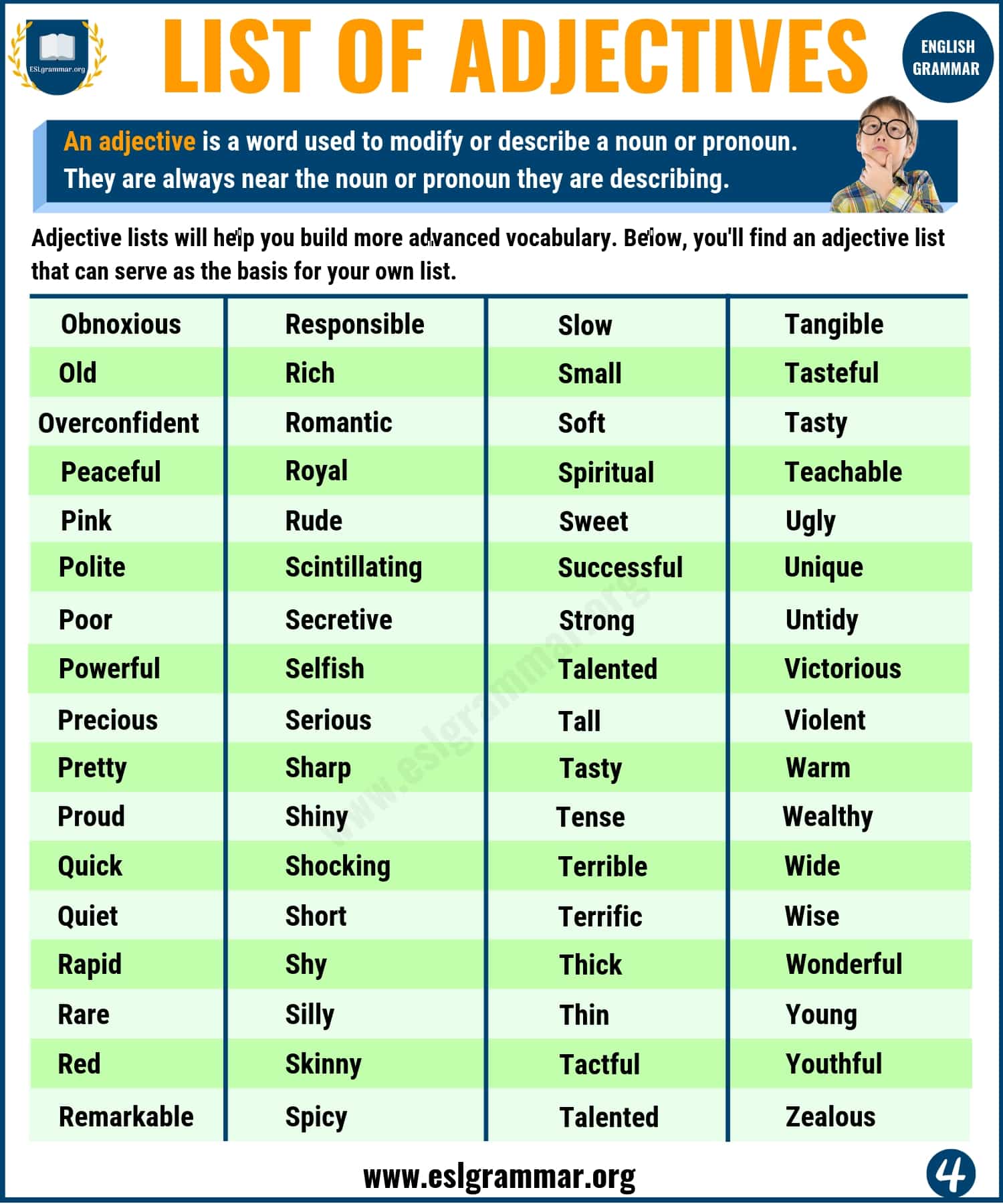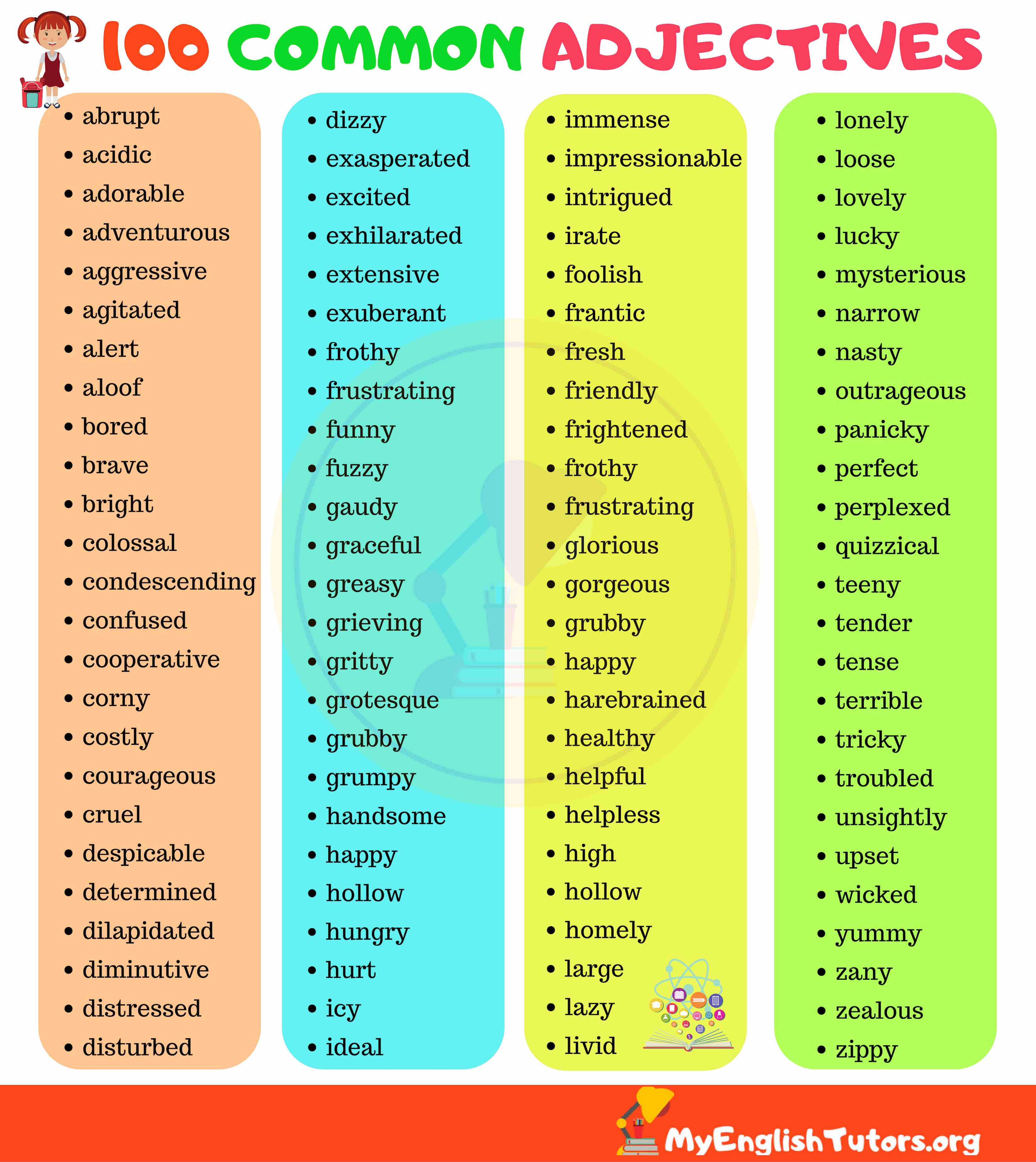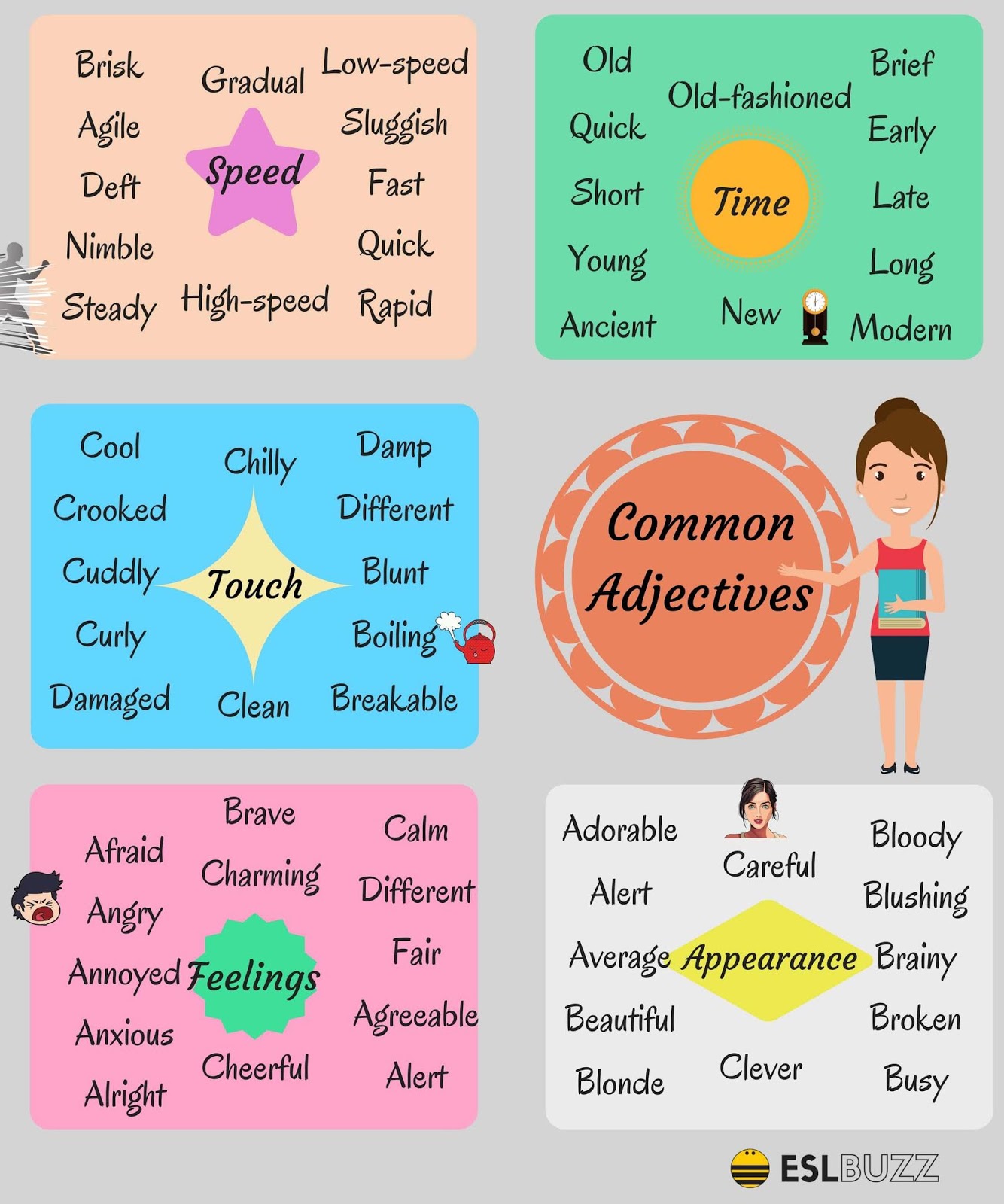Ever thought about how words paint pictures in our minds? It's really quite something, isn't it? Language, you know, acts like a reflection of our deepest thoughts, and the specific words we pick, especially those descriptive ones, can genuinely brighten someone's day or, perhaps, truly shape how we see them. It's a powerful tool, actually, and learning a good variety of these descriptive words, like those that start with a 'P', is very important for anyone looking to speak or write with more precision.
You see, getting to know a wide array of adjectives in English is a pretty big deal. My text, for instance, talks about how useful it is to learn a huge list of these words, even mentioning over 1500 examples with pictures. This kind of learning, it suggests, will certainly help you build up your word collection, making your communication much richer. It's about giving you the tools, isn't it, to express yourself more completely.
And, well, in this particular discussion, we're going to zoom in on a rather special group: adjectives with a p. We'll look at why these specific words matter so much, how they can help you describe people, places, and things with greater accuracy, and, you know, just generally how they can help you expand your vocabulary. It's kind of like adding new colors to your artistic palette, in a way, allowing for more vivid and precise descriptions.
- Wonka Sequel
- The Weeknd Asian Actress
- Kate Middleton Swimwear
- Kpop Diva Plastic Surgery Show
- Paul Ruebens Mugshot
Table of Contents
- What Are Adjectives, Anyway?
- Why Focus on Adjectives with 'P'?
- A Plethora of 'P' Adjectives: Common Examples
- Putting 'P' Adjectives into Practice
- Broadening Your Word Collection
- People Also Ask About Adjectives with a 'P'
- Wrapping Things Up with 'P' Adjectives
What Are Adjectives, Anyway?
So, what exactly is an adjective? Well, it's a word, simply put, that gives us more information about a noun or a pronoun. It describes or modifies it, telling us something about its quality, quantity, or what kind it is. Think of it like this: if you have a "dog," an adjective might tell you it's a "fluffy dog," a "playful dog," or a "huge dog." It just adds a little something extra, doesn't it? My text points out that an adjective is just a word that does this job.
These descriptive words are really quite vital for making our language vivid and precise. Without them, our sentences would feel a bit plain, wouldn't they? They help us paint a clearer picture for our listeners or readers, allowing them to truly grasp what we're talking about. For instance, instead of just saying "the house," you might say "the picturesque house," which instantly creates a different feeling. It's about adding that detail, you know?
Learning these parts of speech, and how they fit together, is a fundamental step in truly mastering English. My text emphasizes that it's very important to learn lists of adjectives, and it even mentions having a huge list of examples. This shows that the more descriptive words you have at your fingertips, the better you can express yourself, and that's something we all want, isn't it?
- Kathleen Carrey
- People Got To Be Free Lyrics
- Miley Cyrus New Photos
- Baby Balloon
- Who Is Disgust In Inside Out 2 In Love With
Why Focus on Adjectives with 'P'?
You might wonder, why single out adjectives with a p? Well, for starters, the letter 'P' kicks off a surprising number of really useful and quite common descriptive words. My text mentions specifically learning a list of common adjectives that start with 'P' for broadening your vocabulary. This isn't just about memorizing words; it's about gaining tools to communicate more effectively, actually.
For those learning English, especially ESL learners, focusing on specific letter groups, like words that start with 'P', can make the whole process feel a bit more manageable. My text, in fact, states that many of the lists, including those for 'O', 'U', and 'I' adjectives, have been chosen especially for ESL learners, often with pictures and example sentences. This structured approach really helps, doesn't it, in making new vocabulary stick?
Plus, having a strong command of adjectives that start with 'P' means you can describe things with more variety and less repetition. Instead of just saying something is "good," you could choose "pleasant," "positive," or "praiseworthy," depending on the exact nuance you're aiming for. It's about precision, you know, making your words work harder for you. And, you know, this kind of specific learning can be pretty satisfying.
A Plethora of 'P' Adjectives: Common Examples
Alright, let's get into some actual examples of adjectives with a 'P'. There's a pretty wide selection, and they can help us talk about all sorts of things, from people's personalities to the feel of a place or the quality of an object. My text does, after all, provide a large list of descriptive adjectives, and these are just some of them.
Describing People with 'P' Adjectives
When you're trying to describe someone's personality, adjectives that start with 'P' can be incredibly helpful. My text asks, "What adjectives would you use to depict the personality of someone who is truly special?" It also talks about how summarizing positive traits can be done with powerful adjectives. So, let's look at some examples:
Patient: Someone who can wait calmly without getting upset. For example, "The teacher was very patient with the new students, explaining things slowly."
Polite: Showing good manners and respect for others. "She's always so polite, remembering to say 'please' and 'thank you'."
Persistent: Not giving up easily, even when things are difficult. "His persistent effort eventually led to him finishing the difficult project."
Practical: Someone who is good at making sensible decisions and dealing with problems effectively. "She's a very practical person; she always finds a simple solution."
Perceptive: Having a keen insight into things, understanding people or situations quickly. "He's incredibly perceptive; he noticed the subtle change in her mood right away."
Passionate: Showing strong feelings or a strong belief. "She's a passionate advocate for environmental causes."
Playful: Fond of fun and games; lighthearted. "The puppy was very playful, always chasing its tail."
Describing Things and Places with 'P' Adjectives
These adjectives aren't just for people; they're great for giving life to descriptions of objects, environments, or even abstract ideas. It's about painting a picture, you know, with words.
Picturesque: Visually attractive, especially in a quaint or pretty style. "The small village was truly picturesque, nestled among the rolling hills."
Pleasant: Giving a feeling of happiness or satisfaction. "The park offered a very pleasant atmosphere for an afternoon stroll."
Portable: Easy to carry or move. "She bought a small, portable speaker for her trips."
Powerful: Having great strength or influence. "The engine was incredibly powerful, allowing the car to accelerate quickly."
Plentiful: Existing in large quantities. "There was a plentiful supply of fresh fruit at the market."
Precise: Exact, accurate, or careful in details. "The architect made very precise measurements for the new building."
Practical: Useful and sensible. "The new design was very practical for everyday use."
Positive 'P' Adjectives for a Brighter Picture
My text makes a good point about using positive words to describe people, saying there's an abundance of positive terms to choose from, and that this "array of optimistic language paints a picture of individuals in the best light." It also mentions over 270 positive words for people and things. So, let's highlight some positive adjectives with a p:
Praiseworthy: Deserving of approval and admiration. "Her dedication to the project was truly praiseworthy."
Productive: Achieving a lot; effective. "It was a very productive meeting; we made great progress."
Promising: Showing signs of future success or good results. "The young artist showed promising talent from an early age."
Profound: Very great or intense; having deep meaning. "His speech had a profound impact on the audience."
Prosperous: Successful in material terms; flourishing financially. "The small business became quite prosperous over the years."
Pure: Not mixed with anything else; unadulterated; morally good. "She had a pure heart, always thinking of others."
Peaceful: Free from disturbance; tranquil. "The lake was so peaceful at dawn."
Putting 'P' Adjectives into Practice
Knowing a list of words is one thing, but actually using them effectively is another, isn't it? The real trick is to incorporate these adjectives with a p into your everyday conversations and your writing. My text mentions learning words with example sentences, and that's really key. It helps you see how they fit naturally.
When you're talking or writing, pause for a moment and consider if there's a more specific or impactful 'P' adjective you could use. Instead of saying "a good plan," perhaps "a practical plan" or "a plausible plan" fits better. This little moment of reflection can really improve your expression, you know, making your language much more precise and engaging.
Practice, as they say, makes perfect. Try to pick one or two new 'P' adjectives each day and consciously try to use them a few times. Maybe describe your day using a 'P' adjective, or talk about a friend. This kind of deliberate practice really helps cement the words in your memory, and you'll find them coming to you more naturally over time.
Practical Tips for Using 'P' Adjectives
Here are a few pointers to help you make the most of your growing vocabulary of adjectives that start with 'P':
Read Widely: Pay attention to how authors use adjectives in books, articles, and even online content. You'll often spot some fantastic 'P' adjectives in context, and that's a great way to learn.
Keep a Word Journal: When you come across a new 'P' adjective, jot it down. Include its meaning, a synonym or two, and an example sentence. My text talks about learning synonyms, like "nice, enjoyable, pleasurable," and this really helps you understand the nuances.
Use Them in Conversation: Don't be afraid to try out new words. The more you use them, the more comfortable you'll become. Even if you stumble a little at first, that's perfectly fine. It's part of the process, you know.
Describe Your Surroundings: Look around you right now. Can you describe something using an adjective that starts with 'P'? Is your chair "plush"? Is the light "pale"? This simple exercise can be quite effective, actually.
Seek Feedback: If you're an ESL learner, ask a native speaker or a teacher to listen to you and offer suggestions on your word choice. They can help you fine-tune your usage.
Broadening Your Word Collection
My text constantly brings up the idea of enhancing and broadening your vocabulary words, and that's really what this is all about. Learning adjectives with a p is just one piece of a much larger puzzle. The goal is to have a rich collection of words at your disposal, ready to use whenever you need them.
The more descriptive words you know, the better you can express complex ideas, subtle emotions, and vivid imagery. This isn't just about sounding smart; it's about being able to truly convey what you mean, which is pretty important for clear communication. It's about building bridges with words, in a way.
Remember, language is always growing, and so should your personal word bank. Keep exploring, keep reading, and keep practicing. Every new adjective you learn, whether it starts with 'P' or any other letter, makes your language skills a little stronger, and that's something to feel good about. It's a continuous journey, you know.
People Also Ask About Adjectives with a 'P'
Here are some common questions folks often have about adjectives that start with 'P':
What are some common adjectives that start with P?
There are many common adjectives that begin with 'P', covering a wide range of meanings. Some popular ones include "patient," "polite," "pleasant," "powerful," "pretty," "public," and "private." These words are used quite regularly in everyday conversation and writing, you know, to describe various aspects of people, places, and things. My text mentions a large list of descriptive adjectives, and these are just a few examples that pop up often.
How can I use adjectives starting with P to describe a person positively?
You can use many 'P' adjectives to describe someone in a good light. For example, you might say someone is "perceptive" if they understand things quickly, or "persistent" if they don't give up easily. "Praiseworthy" suggests they deserve admiration, while "passionate" shows they have strong feelings about something. My text highlights using positive words to paint a picture of individuals in the best light, and these adjectives certainly help with that, don't they?
Why is it important to learn a variety of adjectives, including those with P?
Learning a variety of adjectives, including those starting with 'P', is important because it truly enhances your ability to communicate clearly and vividly. Adjectives add detail and color to your language, helping you express precise meanings and paint clearer mental images for your audience. My text states it's very important to learn lists of adjectives to "enhance your vocabulary words" and "broaden your vocabulary words," which is exactly why focusing on groups like adjectives with a p is so beneficial. It just makes your language richer, you know.
Wrapping Things Up with 'P' Adjectives
So, as we've seen, the world of adjectives with a p is quite rich and useful. From describing a person as "perceptive" or "polite" to calling a landscape "picturesque" or a plan "practical," these words give us so much more precision and flair in our language. My text really underscores the value of learning these words to broaden your vocabulary, and that's a point worth remembering.
The journey of building your vocabulary is a continuous one, and every new word you pick up, especially those descriptive ones, makes your communication stronger. It's not just about knowing the words, but about feeling comfortable using them to truly express what you mean. So, keep exploring, keep practicing, and you'll find your language becoming more vibrant and expressive with each passing day. For more on expanding your vocabulary, you might check out an authoritative language resource, like this one here. It's a pretty good place to start, actually.
- Super Bowl 1 Logo
- Zach Efron Today
- Naomi Russell Instagram
- Soleus Air Window Ac
- Images Drew Barrymore


